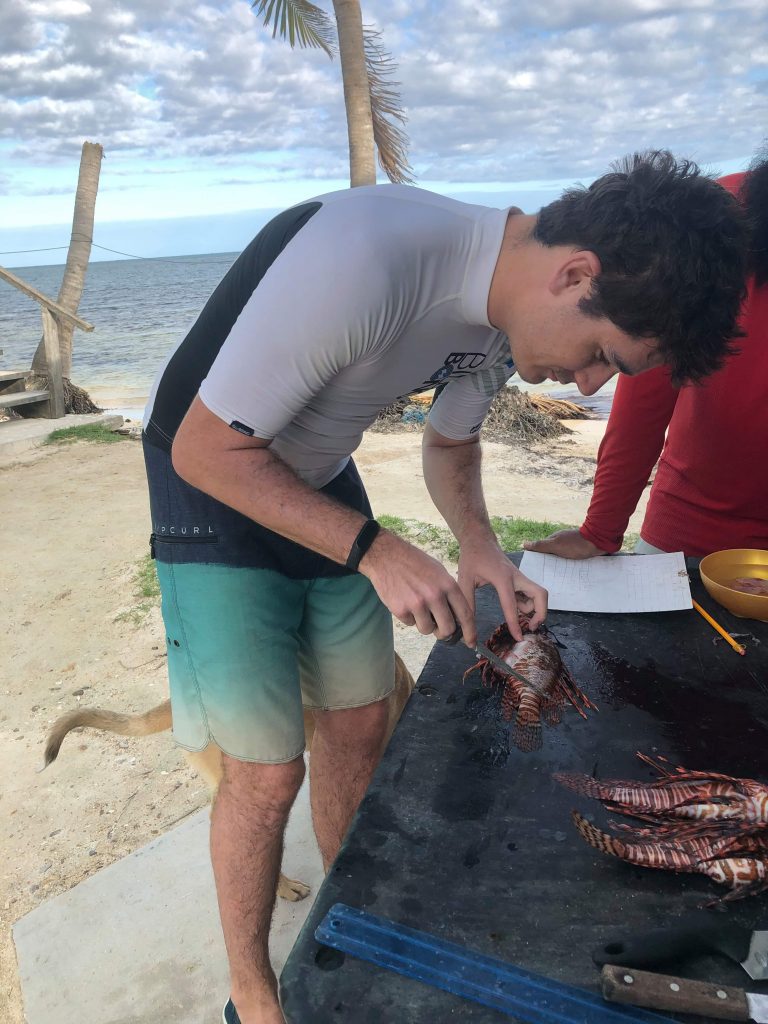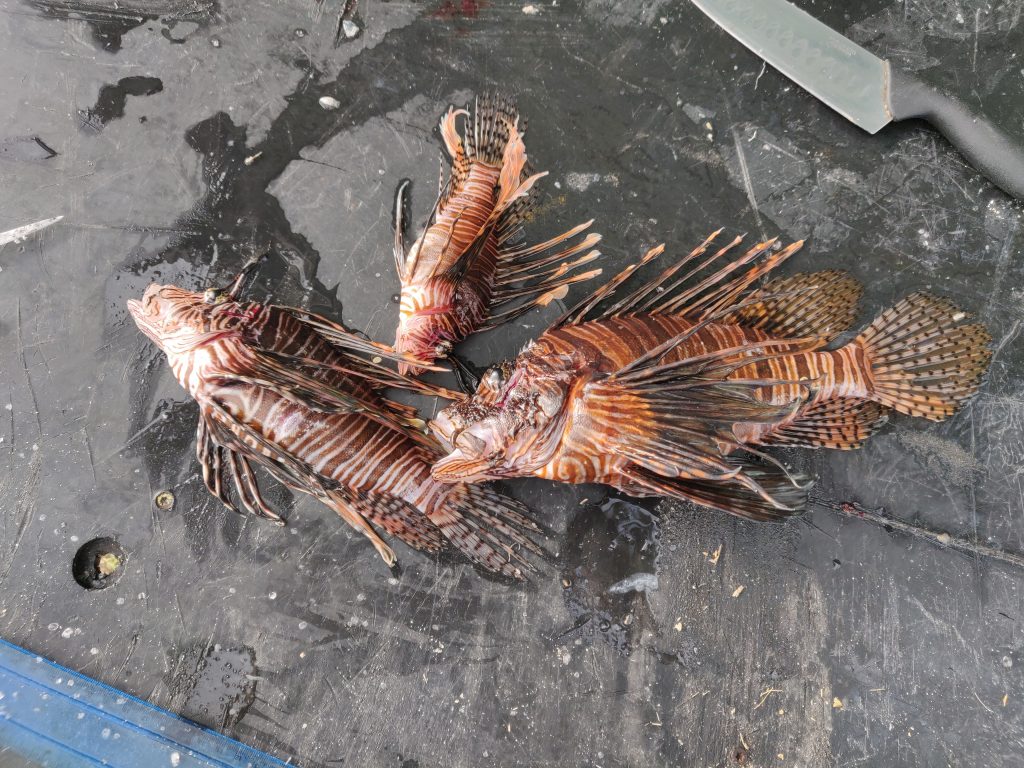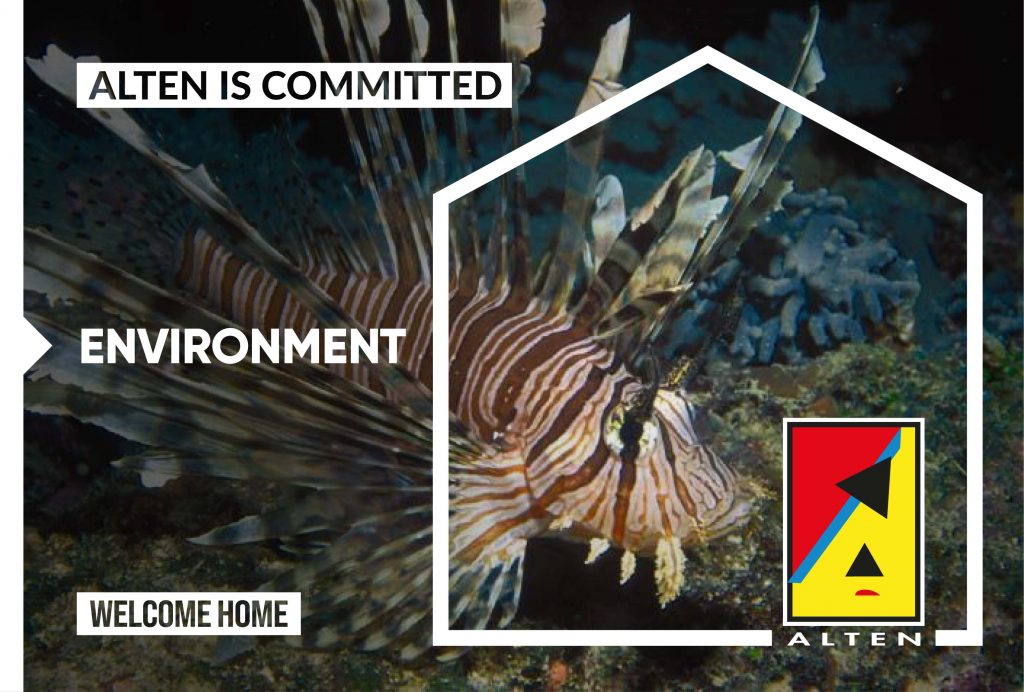ALTEN Switzerland is supporting Robin Quiblier, Specialist, engineer specialist in the in pharmaceutical processes. Robin is currently in Belize participating in an Eco volunteering project with an international association which goal is the conservation and protection of the coral reef. We will follow his progress during the month of February.
LIONFISH: A THREAT TO LOCAL SPECIES
Lionfish are native to the Indo-Pacific but are now well established along the so utheast coast of the U.S., the Caribbean and in parts of the Gulf of Mexico. Experts think that they arrived there because people have been dumping unwanted lionfish from home aquariums. T hey have even been spotted in the Mediterranean, mainly in Cyprus and Greece in recent years . As beautiful as lionfish are, this invasive species has become a major problem for ecology and biodiversity . Since they are not native from those regions, they have very few predators. They multiply much faster than other species and are extremely voracious , destroying all the marine fauna around them. Their expansion is out of control: we can’t eradicate them, but we can contain their spread. While g lobal warming may be a threat to most species, it is a growth opportunity for the hit- loving lionfish . This further accentuates the imbalance in terms of biodiversity. It is known that non-native species can dramatically affect native ecosystems and local fishing economies. Therefore, it is important never to throw non-domestic species into the wild. For a long time, we thought we couldn’t eat lionfish. However, in recent years Belize has started to offer this fish in restaurants, to the delight of tourists and locals alike. It is now a very popular dish in the country. Locals are also starting to use the fish’s spines to make jewelry.
“I spent part of my week hunting lionfish. My colleagues and I catch 16 of them. It is a small amount compared to previous years. This can be explained in two ways: either we are bad at locating them or the amount of lionfish in the region is finally decreasing, which would be a great news! After each capture, once the measurements have been taken (size, number of venomous spines and gender), we have to fillet them and eat them to avoid waste. But this is actually pretty tasty! ”
Robin Quiblier
Stay tuned to learn more about Robin’s project in the next weeks!















